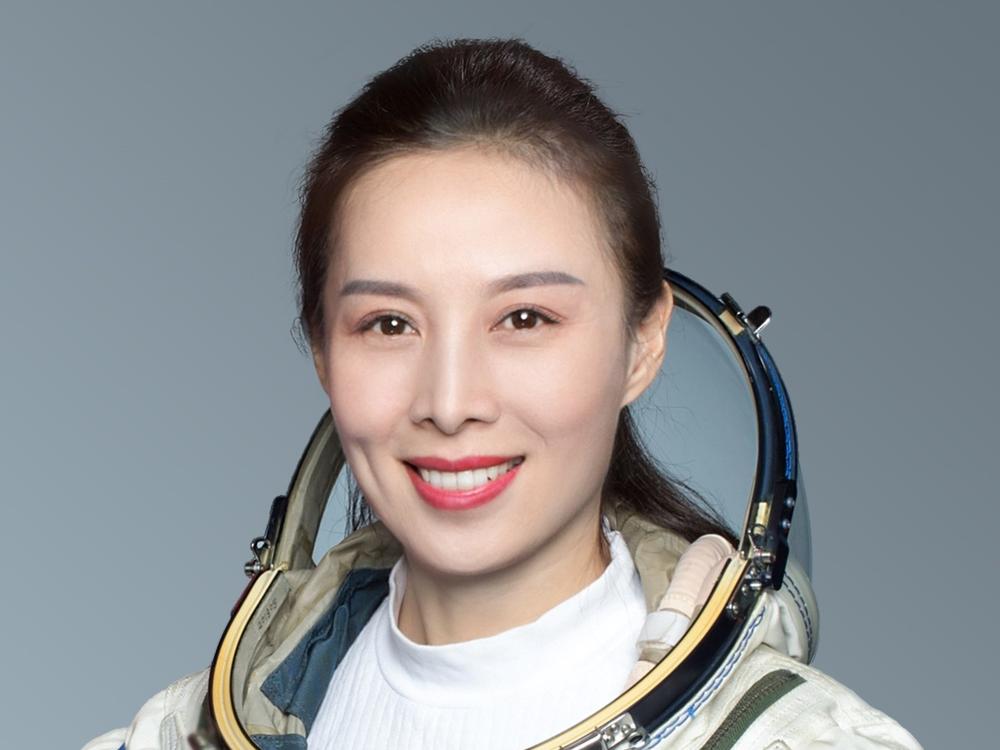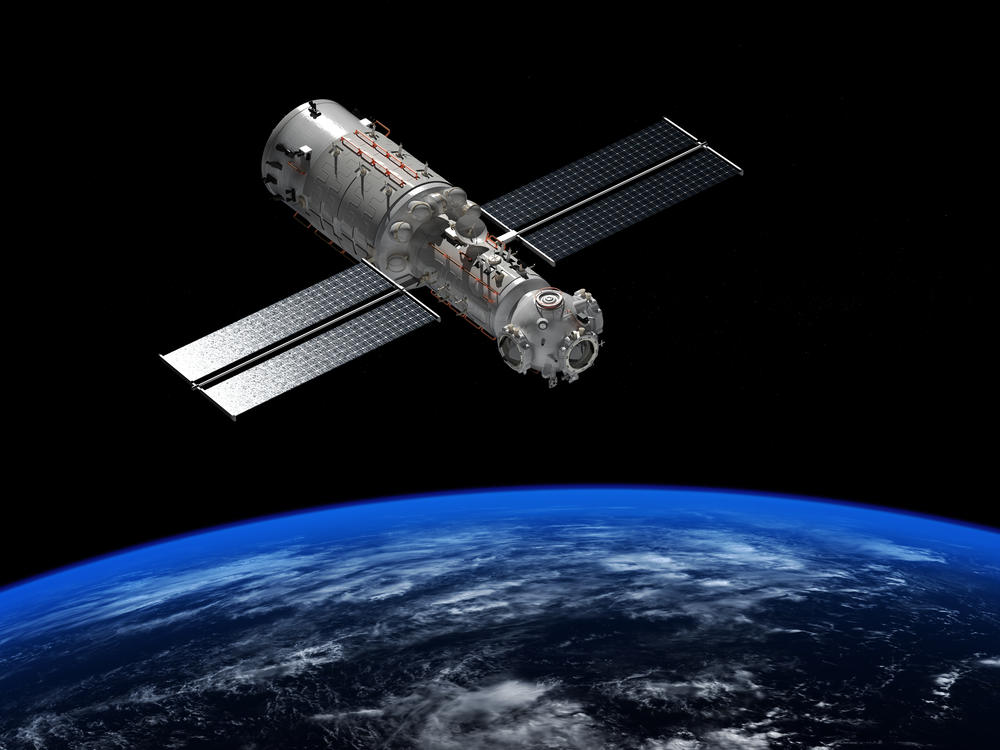Section Branding
Header Content
China has sent a female astronaut for a 6-month stay on its new space station
Primary Content
Updated October 15, 2021 at 12:51 PM ET
China's Tiangong space station will have its first female astronaut after a trio of spacefarers blasted off for a six-month stay aboard the orbital outpost.
Wang Yaping, 41, will be the first female "taikonaut" — the term China uses for its astronauts — to board the station. She and two male colleagues, commander Zhai Zhigang, 55, and Ye Guangfu, 41, are expected to set a new space endurance record for China.
Wang, on her second trip into space, is also set to become China's first female spacewalker, conducting multiple extravehicular activities (EVAs) outside the station during her stay, according to Chinese state media.
It is Ye's first flight, while Zhai flew 13 years ago aboard Shenzhou 7 in a mission that lasted just three days. That means that Wang, who spent two weeks in orbit in 2013 aboard a previous station, has the most space experience of the three.
In an interview with China Central Television, Wang said of her space adventures to date: "Dreams are like stars in the universe. They look far and unreachable, but as long as we try, we are destined to reach them."
In a story about her published Thursday, the Communist Party-controlled Global Times said, "Female taikonauts have many unique advantages compared with men during long-term space stays."
"They have shown to be more stable and endure mental states that can support long-term stays in orbit and are more sensible and considerate to any problems in their surroundings," the media outlet said, adding that women have "strong communication skills and energy."
The successful nighttime launch of the Long March 2F Y13 rocket, with its Shenzhou 13 capsule carrying the three into orbit, lifted off at 12:23 a.m. local time on Saturday (12:23 p.m. ET Friday).
The crew will stay aboard Tianhe, the first of three modules that will eventually make up the Tiangong space station. It launched in April and has already received one crew, who returned last month after three months on the station.
Tiangong, or "Heavenly Palace," is the third Chinese station to carry the name. It's expected to receive the last of its modules sometime next year.
Zhai, the mission commander, has said he expects the six months of weightlessness to be the biggest hurdle for the crew, calling it "a big challenge to our physical and mental situation."
"We will, for sure, encounter some challenges in terms of physical and mental health, and also technical issues," he said.
Copyright 2021 NPR. To see more, visit https://www.npr.org.


